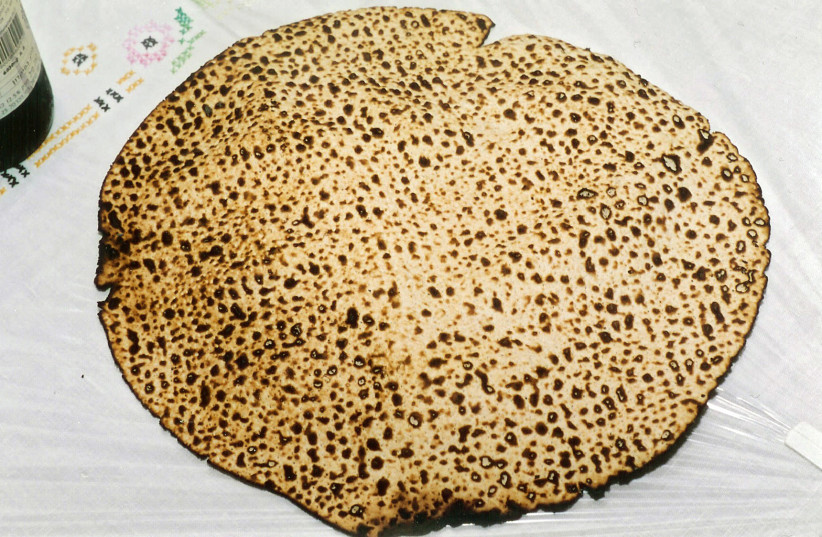On Passover, which is the holiday of spring and matzah, most of us eat a little too much and can push each other to eat even more. Along with heavy and frequent meals, lots of matzah and sitting around, many people will have stomach discomfort, feel full constantly and constipated.
Constipation is a symptom, not a disease that signifies a change in bowel habits. It includes hard stools, few bowel movements, difficulty in passing all of the bowel movement, decrease in the frequency of bowel movements, and sometimes feeling full even after using the toilet. All of these are very unpleasant symptoms. Why do they happen mostly on holidays and what can be done?
Why matzah causes abdominal pain
Let's start with the first hurdle on this holiday — Matzah. Standard matzah is made from matzah flour that contains one of five grains: wheat, barley, oats, rye or spelt. The dough from which matzos are made is only water and flour, so they’re very low in dietary fiber, and of course very low in liquids compared to bread. This is why matzah is a major cause of digestive problems during Passover.
The lack of dietary fiber and fluids in matzah causes some people to suffer more during the holiday from significant constipation, bloating, gas and abdominal pain. For others, eating matzah may actually cause the opposite condition, diarrhea, possibly due to intolerance to its ingredients or other holiday foods.
How to solve constipation
First and foremost make sure to drink plenty of water. Also, the slowdown in movement that gets digested food down the digestive tract is linked to a low-fiber diet which means that you should eat more vegetables and legumes and fewer coconut cookies. Finally, lack of exercise also causes constipation so try to work out once or twice during the week.

And what about gas?
Don’t blame matza for every symptom. Apart from this traditional food, starchy foods like potatoes and corn increase gas production along with dairy products (especially for those with lactose intolerance) and some vegetables like onions, cabbage and broccoli. Eating sugars in desserts and many artificial sweeteners like sorbitol can cause excess gas. For some people, too many eggs, especially hard-boiled ones, can also cause an upset stomach and excessive gas.
To alleviate gas there are several solutions. The most basic rule is to minimize food products that you can’t tolerate.The second rule is to drink plenty of water and tea infusions like fennel, ginger, hot water with lemon and mint tea. And finally, if nothing natural helps, take over-the-counter medications like simethicone (gas x), activated charcoal tablets and colpermin. Bismuth-based medications (such as kalbeten) may also relieve abdominal pain and gas.
